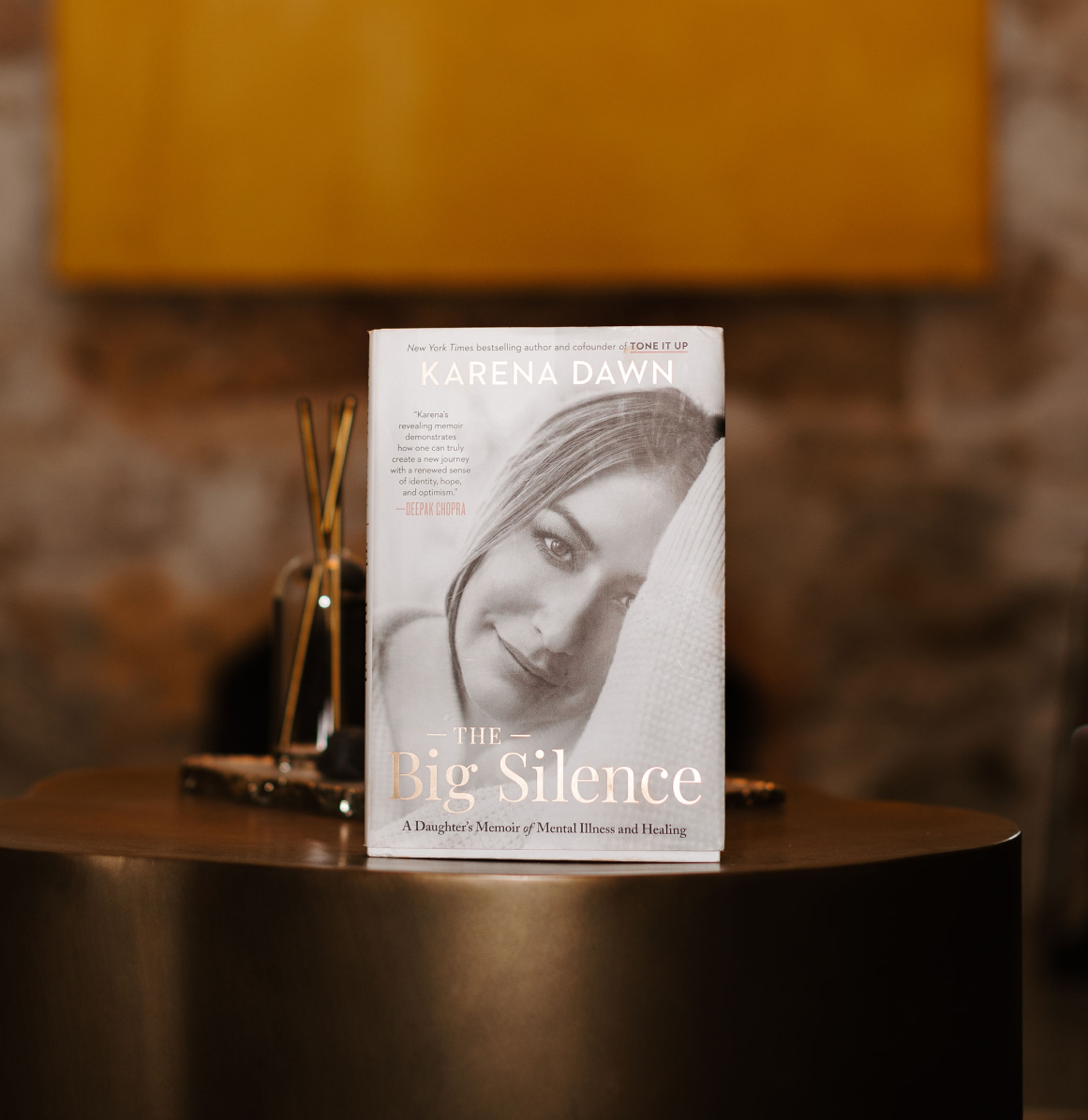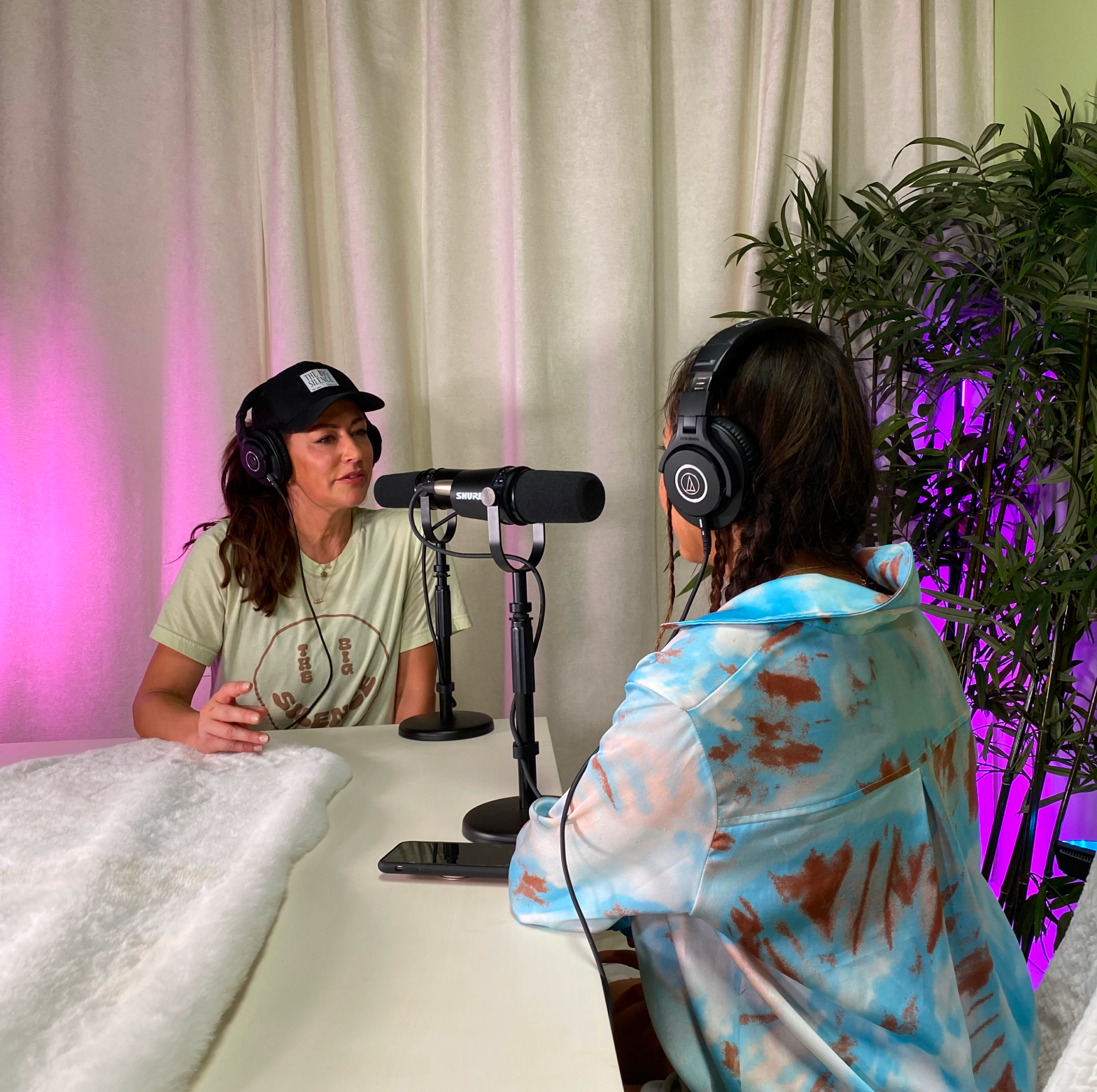
How to Get Started with Mindfulness and Meditation to Reduce Anxiety and Depression
Welcome back to Big Feels Monday, a weekly series by The Big Silence where we talk about how we’re feeling, and bring up tools and inspiration to help start the week off.
Today Karena and James answer your biggest questions about how mindfulness and meditation can benefit the mind to reduce anxiety and depression. They discuss the science behind mindfulness and meditation, as well as provide tips for getting started, so you can take action now to improve your mental health.
What you'll learn:
- The science behind how mindfulness and meditation can reduce anxiety and depression
- The benefits of mindfulness and meditation
- How to get started with mindfulness and meditation
- Tips for making mindfulness and meditation a regular part of your life
Who this video is for:
- People who are interested in learning more about mindfulness and meditation
- People who are experiencing anxiety and/or depression
- People who are looking for ways to improve their mental health
Key takeaways to help you begin mindfulness meditation to reduce anxiety:
- Meditation is a simple practice that can benefit your day, whether you meditate for just two minutes, or an hour.
- The thoughts are OK. Let the thoughts come and let them float away like a cloud.
- The mind is a muscle, and keep strengthening that muscle.
- You can tell those negative thoughts to go away eventually.
What do I need to do to receive the benefits of meditation?
To get the benefits of reducing anxiety through a daily mindfulness meditation practice, you don’t need to do anything except make a little time in your day. It’s OK to start small. Even starting with two minutes a day can help you to begin receiving the benefits. For the sake of consistency, consider setting aside a specific time each day for your practice, whether it's first thing in the morning, during your lunch break, after a workout, or before bed. Consistency is key, so making your mindfulness and meditation a routine will help you to get your practice in even on days when you don't feel like showing up for it.
Be gentle with yourself and approach your practice with an open mind and heart, and try to stay engaged in the moment, without judgment. You may experience new thoughts, feelings, bodily sensations, or moments of clarity. Try to witness those thoughts or feelings without getting distracted or pulled in. And if you do get distracted, that’s OK! Take a deep breath and try again. The more you practice meditation, the more your brain will become conditioned to the experience, and the more it will help you to deal with your anxious thoughts and feelings in daily life by having developed the skills to notice your thoughts and re-center.
There are so many ways to meditate! Experiment with different techniques to find the ones that you connect with the most; such as guided meditation, breath awareness, mindful walking, or even dance. Take the time to find what resonates with you. It's worth it to get to know this powerful tool that can help calm your restless mind and soothe frayed nerves, and help to reduce anxiety and depression.
Ready to give meditation a try? Take a 1 minute meditation break with Karena:
How do mindfulness and meditation help me to reduce my anxiety?
Did you know that mindfulness practice actually changes your brain’s structure? It has a direct impact in the regions of the brain that are associated with attention and emotion regulation. According to the APA:
“Psychology researchers found strong evidence that people who received MBCT (Mindfulness Based Cognitive Therapy) were less likely to react with negative thoughts or unhelpful emotional reactions in times of stress. They also found moderate evidence that people who participated in MBCT or MBSR [mindfulness based stress reduction] were better able to focus on the present and less likely to worry and to think about a negative thought or experience over and over.”
Here's how incorporating daily mindfulness and meditation practices into your routine can help alleviate anxiety:
Stress Reduction
Stress refers to the consequence of the failure of a person to respond appropriately to emotional or physical threats, whether actual or imagined. By focusing on the present moment and letting go of worries about the past or future, you can break free from the cycle of anxious thoughts that often contribute to stress.
Increased Self-Awareness
By bringing attention to your thoughts and emotions as they arise, you'll begin to recognize patterns of thought that may be contributing to your anxiety, and you will be empowered to respond more skillfully to challenging situations.
Emotional Regulation
Emotional regulation is the ability to control your emotional state. It involves recognizing, managing, and responding to your emotions. Regular meditation practice has been shown to improve emotional regulation, helping individuals better manage their reactions to stressful events. By cultivating a sense of inner calm and equanimity, you can respond to difficulties with greater resilience and composure.
Improved Focus and Concentration
Have you found yourself feeling overwhelmed and uncertain about what actions to prioritize? Perhaps you drift to look at your phone or you inbox, instead of focusing on the task or issue that needs to be dealt with at the moment. Anxiety can leave us feeling scattered and with a restless mind that makes it difficult to concentrate on tasks or stay present in the moment. Mindfulness and meditation can help to sharpen your focus and attention, allowing you to direct your mental energy more effectively.
Mind-Body Connection
Through the strong connection between the mind and body anxiety and depression can manifest physically in the form of tension, tightness, or other discomfort. Mindfulness practices, such as body scans and mindful movement, can help you tune into these bodily sensations and release tension, promoting relaxation and physical well-being.
Enhanced Resilience
Resilience is the capacity to withstand or recover quickly from difficulties. "It's a process and outcome of successfully adapting to difficult or challenging life experiences, especially through mental, emotional, and behavioral flexibility and adjustment to external and internal demands," and according to the APA this is a capacity which can be cultivated through practice.
Building a daily mindfulness and meditation practice strengthens your resilience to stress and adversity over time. By nurturing a sense of inner peace and stability, the goal is to navigate life's challenges with greater ease and grace. Fitness is also a great way to build mental resilience.
Karena's trainer, Sandy Brockman, has a tip for how to cultivate your mental toughness and become more resilient in your life, in Mind Over Matter: How to Build Mental Resilience through Fitness.
How does mindfulness and meditation help me to reduce symptoms of depression?
According to the World Health Organization, depression affects more than 264 million people globally, making it a leading cause of disability worldwide. Despite its prevalence, effective treatments for depression remain a challenge. However, Mindfulness and meditation are powerful tools to add to your mental health regime to help alleviate symptoms of depression.
One way depression persists in the mind is through rumination. Rumination is a repetitive self-perpetuating cycle of negative thoughts that may play like a loop in your head. Mindfulness interrupts this pattern by encouraging you to observe your thoughts impartially, without becoming entangled in them. By cultivating a non-judgmental awareness of your thought patterns, you can develop greater cognitive flexibility and detachment from depressive rumination.
With depression, you might experience an onslaught of negative self-talk and profound feelings of worthlessness, self-criticism and inadequacy. Mindfulness and meditation can help by offering a path towards self-acceptance. By cultivating self-compassion, you can challenge the harsh inner critic and foster a more nurturing and supportive relationship with yourself.
Meditation Practice with Karena Dawn
Through her work as the founder of Tone It Up and as a meditation instructor for Chopra Global, Karena has inspired millions to take up a daily meditation practice! Karena has created an extensive library of original guided meditations, and you can access her guided meditation playlist for free through YouTube, or download the Tone It Up app for even more meditations with Karena. Additionally, for a special donor incentive for major gifts to The Big Silence Foundation, Karena has a 1-1 virtual meditation program as a gift in return for a your generous donation.
Ready for something more? Try this meditation (>10 minutes) with Karena for tapping into your inner strength:
What is your favorite way to meditate? Let us know in the comments below!
BIG FEELS FEEDBACK
How are you really feeling? We'd love to hear about your week, or share your favorite tools for the week in the comments!
|
The Big Silence Foundation, Inc is a U.S. tax-exempt 501(c)(3) organization dedicated to changing the culture of mental health. Consistent with IRS guidelines, all gifts are tax-deductible to the extent allowable by law. Donate to bring change with us!
|
Start a conversation in your The Big Silence apparel.
The information provided is for educational purposes only, and does not substitute for professional medical advice. Users are advised to consult a medical professional or healthcare provider if they're seeking medical advice, diagnoses, or treatment.
**Please note that if your thoughts start becoming hopeless or suicidal, contact emergency at 988 or 911 andcrisis services immediately. You can find more resourceshere. Text HELLO to 741741 to be connected with a trained crisis counselor.









1 comment
“Do not pity the dead, Harry. Pity the living and, above all, those who live without love.” (the spirit of school headmaster Albus Dumbledore, Harry Potter and the Deathly Hallows: Part 2)
However sadly, many chronically and pharmaceutically-untreatable depressed people won’t miss this world. It’s not that they necessarily want to die per se; it’s that they want their pointless corporeal suffering to end.
The greatest gift life offers such poor souls is that someday they get to die. Perhaps worsening matters is when suicide is simply not an option, meaning there’s little hope of receiving an early reprieve from their literal life sentence.
I awoke from another very bad dream, a reincarnation nightmare / where having blessedly died I’m still bullied towards rebirth back into human form / despite my pleas I be allowed to rest in permanent peace. //
My bed wet from sweat, I futilely try to convince my own autistic brain / I want to live, the same traumatized dysthymic brain displacing me from the functional world. //
Within my nightmare a mob encircles me and insists that life’s a blessing, including mine. //
I ask them for the blessed purpose of my continuance. I insist upon a practical purpose. //
Give me a real purpose, I cry out, and it’s not enough simply to live / nor that it’s a beautiful sunny day with colorful fragrant flowers! //
I’m tormented hourly by my desire for emotional, material and creative gain / that ultimately matters naught, I explain. My own mind brutalizes me like it has / a sadistic mind of its own. I must have a progressive reason for this harsh endurance! //
Bewildered they warn that one day on my death bed I’ll regret my ingratitude / and that I’m about to lose my life. //
I counter that I cannot mourn the loss of something I never really had / so I’m unlikely to dread parting from it. //
Frustrated they say that moments from death I’ll clamor and claw for life / like a bridge-jumper instinctively flailing his limbs as though to grasp at something / anything that may delay his imminent thrust into the eternal abyss. //
How can I in good conscience morosely hate my life / while many who love theirs lose it so soon? they ask. //
Angry I reply that people bewail the ‘unfair’ untimely deaths of the young who’ve received early reprieve / from their life sentence, people who must remain behind corporeally confined / yet do their utmost to complete their entire life sentence—even more, if they could! //
The vexed mob then curse me with envy for rejecting what they’d kill for—continued life through unending rebirth. //
“Then why don’t you just kill yourself?” they yell, to which I retort “I would if I could. //
My life sentence is made all the more oppressive by my inability to take my own life.” //
“Then we’ll do it for you.” As their circle closes on me, I wake up. //
Could there be people who immensely suffer yet convince themselves they sincerely want to live when in / fact they don’t want to die, so greatly they fear Death’s unknown? //
No one should ever have to repeat and suffer again a single second that passes. //
Nay, I will engage and embrace the dying of my blight!